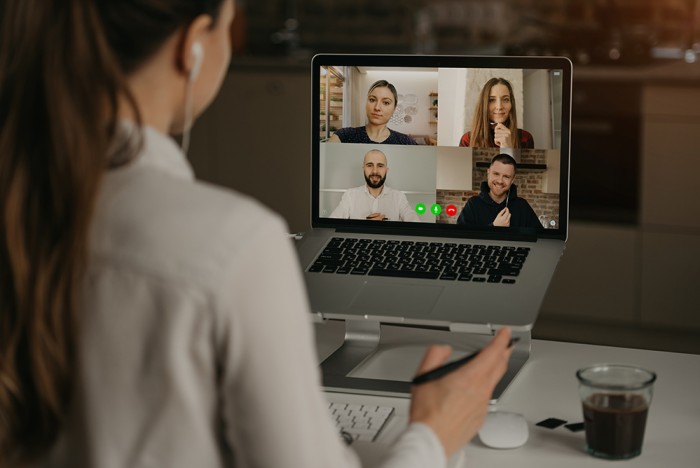Reminder: Coalition for the Mental Health Safety Net Meeting Scheduled for Feb. 22
OMHSAS Seeking Nominations for the 2023 Dennis Marion Impact Award

The Dennis Marion Impact Award recognizes local and state government employees whose initiatives, processes, and projects have led to significant improvements in Pennsylvania’s behavioral health service delivery system.
Background:
The Dennis Marion Impact Award was established in 2017 in honor of Dennis Marion’s commitment to public service throughout his distinguished career, which spanned over three decades. Dennis served as Deputy Secretary for Pennsylvania’s Department of Human Services’ Office of Mental Health and Substance Abuse Services from 2013 to 2017. Prior to his state employment, Dennis served Cumberland County, Pennsylvania for 31 years in various positions, such as County Administrator, Director of the Drug and Alcohol Commission, and Director of the Office of Mental Health and Intellectual Disabilities.
Just like Dennis Marion, whose strong leadership, passion for public service, and commitment to the people he served did not stop at the boundaries of his work in any single county or agency, the Dennis Marion Impact Award recognizes strong performers who bridge disparate missions and drive towards a single goal of excellence in public service.
Purpose:
The purpose of the Dennis Marion Impact Award is to recognize outstanding and meritorious achievement in working for state or local government, encourage the highest standards of performance in Pennsylvania’s public sector, attract outstanding individuals to a career in public service, and highlight public awareness of the value of public service and its impact on the behavioral health and quality of life of individuals and communities.
Eligibility Criteria:
Any current state and/or local government employee in Pennsylvania that has made an outstanding contribution in the area of behavioral health (mental health and/or substance use disorders) in Pennsylvania is eligible for nomination for the Dennis Marion Impact Award. Individuals that have built effective, collaborative partnerships across different organizations, agencies, and/or other stakeholders to define and solve problems, or reach agreements on a course of action, will be given priority consideration for this award. Nominees’ contributions may be on a sustained basis or through a single, exceptional accomplishment. Nominations will be judged on three measurements: innovation, implementation, and outcomes.
Instructions:
The completed nomination form must be submitted electronically to Lindsay Graves via email by 5:00 pm EST on March 24, 2023. The nomination period is open from February 17, 2023, to March 24, 2023.. Nominations will not be accepted before or after the nomination period. Note that individuals may not self-nominate.
The award will be announced during Pennsylvania’s May 2023 Mental Health Awareness Month events. Questions regarding this award may be directed to Lindsay Graves via email.
Sponsoring Organizations:
Pennsylvania Department of Human Services — Office of Mental Health and Substance Abuse Services
Mental Health Association in Pennsylvania
Pennsylvania Association of County MH/DS Administrators
Rehabilitation and Community Providers Association
Pennsylvania Association of County Drug and Alcohol Administrators
Pennsylvania Mental Health Consumers’ Association
Laval Miller-Wilson Named OCYF New Deputy Secretary
Laval Miller-Wilson will join the Pennsylvania Department of Human Services (DHS) on Monday, March 13 as the Deputy Secretary for the Office of Children, Youth, and Families (OCYF), which supervises the county-operated child welfare and juvenile justice systems. Miller-Wilson, an attorney, is deeply committed and passionate about ensuring that vulnerable populations get the care they need and deserve.
Miller-Wilson has been the Executive Director of the Pennsylvania Health Law Project (PHLP) since 2009, a non-profit that protects and advances health care rights through free legal services, community education, and systems advocacy. At PHLP, he worked to make the health industry and policymakers more attuned to what people want and need — and more accountable for making it happen. He was lead counsel for Medicaid enrollees on Pennsylvania’s Medical Assistance (Medicaid) Advisory Committee, which advises the Commonwealth on the impact of current and proposed Medicaid policies and practices. He delivered consumer-informed perspective about the state’s implementation of the Affordable Care Act, performance of Medicaid managed care plans, and determinants of health.
Prior to joining PHLP, Miller-Wilson worked for 14 years at Juvenile Law Center (JLC) representing children in the child welfare, juvenile, and criminal justice systems. At JLC, he led their 2008 petition to the Pennsylvania Supreme Court to ensure accused youth in Luzerne County had the right to counsel (subsequently known as the “Kids for Cash” scandal), and federal litigation to improve the delivery of basic and special education to children in the criminal justice system. He was also the lead author of a 2003 assessment of children’s access to counsel and the quality of representation they receive in Pennsylvania’s juvenile justice system that required surveying and visiting juvenile courts across the Commonwealth.
SAMHSA Announces the 6th Annual Older Adult Mental Health Awareness Day Symposium
Mark your calendars to join SAMHSA on May 11 for the 6th Annual Older Adult Mental Health Awareness Day Symposium!
This free, all-day, virtual event will feature an engaging plenary, informative sessions, and a diverse array of topics addressing the most pressing behavioral health needs in older adults.
Who should attend?
Public health practitioners, professionals in the aging network, mental health providers, substance use treatment providers, health care professionals, and anyone interested in ensuring the mental health of older adults. In partnership with the E4 Center of Excellence for Behavioral Health Disparities in Aging, NCOA will be offering continuing education for several disciplines.
The symposium is brought to you by the National Council on Aging, the Administration for Community Living, the Health Resources and Services Administration, and the Substance Abuse and Mental Health Services Administration.
Watch for updates by mid-March from RCPA for registration info.
Psychiatric Rehabilitation Webinar by Drexel University Behavioral Health Education: March 15–16
OMHSAS Monthly Stakeholder Webinar Registration Now Open
The Office of Mental Health and Substance Abuse Services’s (OMHSAS) February 2023 Stakeholder webinar is scheduled for next Friday, February 24, 2023, from 1:00 pm – 2:00 pm. The February Stakeholder webinar was rescheduled due to conflicts with the quarterly Mental Health Planning Council (MHPC) meeting.
Register for the meeting here. After registering, you will receive a confirmation email containing information about joining the webinar.
Call-in Number: (914) 614-3221
Access Code: 458609184#
If you have any questions or would like RCPA to submit a topic for the webinar, please contact RCPA Policy Director Jim Sharp.
DHS Provides Update on the End of the PA PHE, Medicaid, and CHIP
Pennsylvania is preparing for a major change in renewal processes for Medicaid and Children’s Health Insurance Program (CHIP) recipients.
Starting April 1, 2023, Pennsylvania is required by federal law to review Medicaid and CHIP recipients’ eligibility every year, which means that recipients must submit a renewal. While the Department of Human Services (DHS) still sent renewals during the height of the COVID-19 pandemic, most people were not disenrolled from Medicaid or CHIP because of a change in eligibility.
DHS encourages everyone to share the following information with Medicaid and CHIP recipients to help them stay informed about renewals.
What Should I Do Right Now?
The best thing that Medicaid and CHIP recipients can do right now to prepare for their renewal is to make sure that their contact information is up-to-date with DHS. By making sure that their information is current, recipients can receive timely updates about their renewal. They also can opt-in to receiving text and email alerts about their benefits.
- Visit COMPASS and log into their My COMPASS Account.
- Use the free myCOMPASS PA mobile app.
- Call 877-395-8930 or 215-560-7226 (Philadelphia), Monday – Friday from 8:00 am – 4:30 pm.
What Else Do I Need to Know?
Completing Medicaid and CHIP Renewals
Renewals should be completed when they are received, even if recipients receive them before April 1, 2023. Recipients will receive a renewal packet in the mail when it is time to renew their coverage. Information about their renewal will start to arrive 90 days before it is due. It is very important that renewal forms are completed and returned even if nothing has changed. Completing a renewal allows DHS to determine eligibility for MA or CHIP coverage. Coverage will continue for recipients who are still eligible.
There are a few ways for recipients to complete a renewal:
- Complete the forms DHS sends and mail them back in the envelope included in the packet.
- Drop completed forms off at the local county assistance office (CAO).
- Complete the renewal online.
- Complete the renewal over the phone by calling 866-550-4355.
What is Continuous Coverage?
Under the continuous coverage requirement, individuals covered by Medicaid and/or CHIP have been able to keep their health coverage even if they would have otherwise become ineligible for the program based on other factors.
Evaluating Eligibility
Once the continuous Medicaid and CHIP coverage requirement ends, recipients will have to complete a renewal to maintain their coverage as long as they are eligible.
Are You Ineligible for Coverage?
DHS will provide instructions on how to re-enroll or share options for coverage if individuals are no longer eligible. Options for free or low-cost health coverage are available online.
SAMHSA to Host Webinar on How To Develop a Competitive Grant Application
The Office of Financial Resources at the Substance Abuse and Mental Health Services Administration (SAMHSA) will be conducting a webinar on how to develop a competitive grant application. The same webinar will be offered on two dates: February 23, 2023, and March 7, 2023, both at 2:00 pm (ET).
Webinar: How to Develop a Competitive Grant Application
The webinar will address:
- The three registration processes that need to be completed;
- Preparing to apply for a grant;
- Key components of the Notice of Funding Opportunity (NOFO);
- Responding effectively to the evaluation criteria; and
- Resources and technical assistance that are available.
Information on how to access the webinar can be found on the Training Events web page. There is no need to register in advance. If you would like to receive the slides prior to the webinar, you can make a request electronically.
SAMHSA Funding Opportunity for Youth Mental Health Systems of Care
The Substance Abuse and Mental Health Services Administration (SAMHSA) will award approximately 26 applicants up to $3,000,000 to provide resources to improve the mental health outcomes for children and youth, birth through age 21, who are at risk of or have serious emotional disturbances (SED) and their families. This grant supports the implementation, expansion, and integration of the System of Care (SOC) approach by creating sustainable infrastructure and services required as part of the Comprehensive Community Mental Health Services for Children and their Families Program.
You can find additional information here. The grant closes on March 21, 2025.
If you have further questions, please contact RCPA Policy Director Jim Sharp.
















